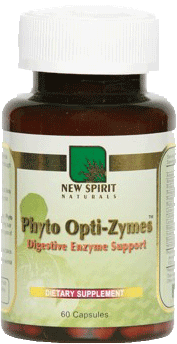Milling and Refining
Modern technology used to refine wheat, rice, oats and other grains not
only depletes the enzymes, but also destroys many vitamins and minerals
that your body needs in order to function. Of the 22 nutrients decreased
during the milling of white flour, only four (niacin, thiamine, riboflavin
and iron) are replaced when flour is enriched. Fortifying, however, does
not replace the lost enzymes.
Drying
Extending shelf life and preserving the color of dried foods means halting
maturation and ripening before they are dehydrated. Consequently, many
dried foods are often pretreated to kill the enzymes. The most common
methods used to inactivate enzymes are blanching the food with hot water,
or steaming followed by rapid cooling. These steps can set the color,
kill microorganisms and shorten drying time. Another method used to inactivate
enzymes that cause foods to turn brown is to treat them with sulfur compounds.
Canning
Once food is canned, it must be heated in its sealed container (usually
glass or metal) to kill microorganisms. Canning normally requires temperatures
of 212°. Most, if not all enzymes are destroyed in this process.
Irradiation
Irradiation is a relatively new process that exposes food to as much as
300,000 Rads (about the same amount of radiation as 30 million chest x-rays).
There is evidence that irradiated foods lose vitamins that are important
enzyme cofactors, especially B complex vitamins, plus vitamins A, C and
E.
Preservatives and Flavor Enhancers
Sodium Nitrate can reduce the activity of digestive enzymes in the small
intestines. Many artificial flavorings can cause allergic reactions and
some may also inactivate many of the body’s enzymes. For example,
the flavoring agent, benzaldehyde, made synthetically through the oxidation
of toluene or from benzol chloride and lime, effectively inactivates glutathione
peroxidase, an important antioxidant enzyme. This enzyme is responsible
for removing hydrogen peroxide from the brain. Inactivating the enzyme
may interfere with nerve transmissions.
Salt and Sugar are both enzyme destroyers. Salt is an enzyme
inhibitor because it denatures proteins.
Excessive Alcohol Consumption
High alcohol intake can impair the digestion and absorption of nutrients,
especially the B vitamins needed as coenzymes.
Acetaldehyde, a by-product of alcohol metabolism, causes B vitamin deficiencies
and deactivates an enzyme involved in prostaglandin production.
A number of enzymes, especially trypsin and chymotrypsin, which help digest
proteins, are inhibited by alcohol and acetaldehyde. The higher the alcohol
consumption, the greater the enzyme inhibition.
The Sun Rays
A recent study analyzed the activities of the antioxidant enzymes superoxide
dismutase (SOD) and catalase in the body. One-half hour after UVB radiation,
they found enzyme activity had decreased to almost 60% of the control
values.
Medications
Drugs can affect your enzymes and your nutritional status in many ways
including decreasing the appetite, altering food digestion and interfering
with the absorption of nutrients. They can affect metabolism
and excretion. In addition, drugs can directly affect specific
enzymes and enzyme systems.
According to Professor Thomas Devlin, Ph.D., author of Textbook of
Biochemistry (New York: Wiley-Liss, 1993), enzyme inhibition is
the goal of almost all modern drug therapy. Many drugs, including
antibacterial, antiviral and antitumor drugs are designed to inhibit specific
enzymes and, therefore, interfere with certain metabolic processes.
For example, antacids neutralize stomach acid which is necessary to activate
the enzyme pepsin.
Should one supplement with enzymes?
The answer is a resounding, YES.
Dr. Edward Howell states, “The length of life is inversely proportional
to the rate of exhaustion of the enzyme potential of an organism. The
increased use of food enzymes promotes a decreased rate of exhaustion
of the enzyme potential.”
Phyto Opti-Zymes™ by
New Spirit Naturals

